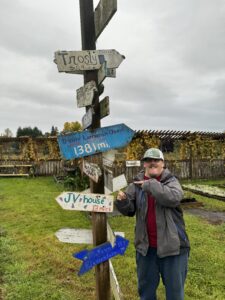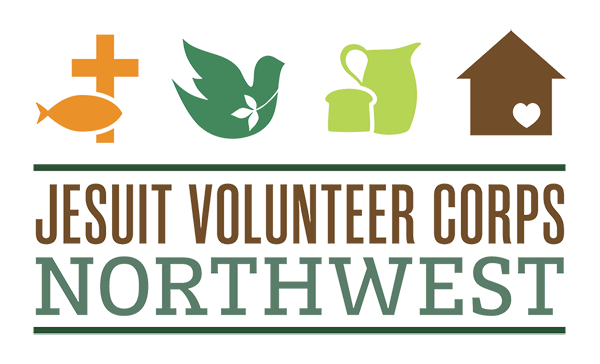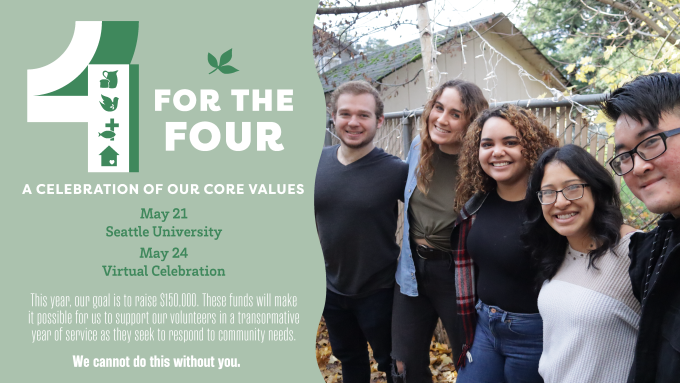Out of these round-robin responses emerges the message: our bodies are tired, but the spirit is strong. This small ritual reflects the essence of life on the farm at L’Arche: a place where service and community go hand in hand, and where the work of the body is as meaningful as the work of the spirit.
Service with Purpose
Elie Flanagan (she/they), a Jesuit Volunteer, is in their second year of service at L’Arche Farm & Gardens as the Farm Associate. Reflecting on the unique nature of this community, Elie says, “L’Arche is special. People remember you. Once you’ve been here, you’re accepted. People want to hear from you. It’s a responsibility, but also a gift.”
Over time, Elie’s role shifts with the rhythm of the seasons. “It’s an adventure,” she says. “There’s a bit of chaos to it, but it’s beautiful.”

One of the most striking aspects of Elie’s experience is the evolving pace and deepened relationships that develop over time. Having worked for a year before joining JVC Northwest, Elie compares the pace of life at L’Arche to her previous job, noting that here, “there’s a different relationship with the people you see every day.”
Elie reflects on how service has shaped them personally: “I’ve grown a lot. I’ve evolved in ways I didn’t expect. It’s special to be part of a community like this, where you take responsibility for who you are and who you get to be.” Elie’s time at L’Arche has made her more observant and aware of the impact of small moments in daily life—moments that shape community.
Accessibility as Liberation
Elie believes that “it’s easier to do justice when you have resources,” but she also points out that a shift in thinking is needed. “Everyone, at some point, will have to think about accessibility,” she says. The work done at L’Arche isn’t just about providing resources—it’s about fostering a mindset where accessibility is not an afterthought, but a core principle. It’s about asking: How do we create a space where everyone’s needs are valued, and where everyone has the ability to participate fully?
This philosophy extends beyond just physical spaces—it’s about building relationships that honor the full dignity of every individual, regardless of ability. Elie’s reflections speak to the transformative potential of such relationships, where service becomes less about “doing for” and more about “being with.”
Conclusion: The Work of Justice and Peace
L’Arche is grounded in a philosophy of mutuality—one where each person, whether they have a disability or not, is valued for their unique contributions. “It’s a meeting of equals,” says Stephan Posner, an international leader of L’Arche, “Our watchword must always be ‘with,’ not ‘for.’”
At L’Arche, the work of building community is both personal and collective. Through everyday acts of service, community members and friends engage in a kind of justice that goes beyond what’s often understood as activism. It’s not about grand gestures, but about everyday choices that honor people’s inherent worth and dignity.
In the quiet moments, in the steady rhythm of the farm, and in the daily joys shared, there is a powerful reminder: when we live with each other, we create a space of peace. And in a world that can feel fractured and divided, L’Arche offers a model for a more just, accessible, and connected way of living together.


